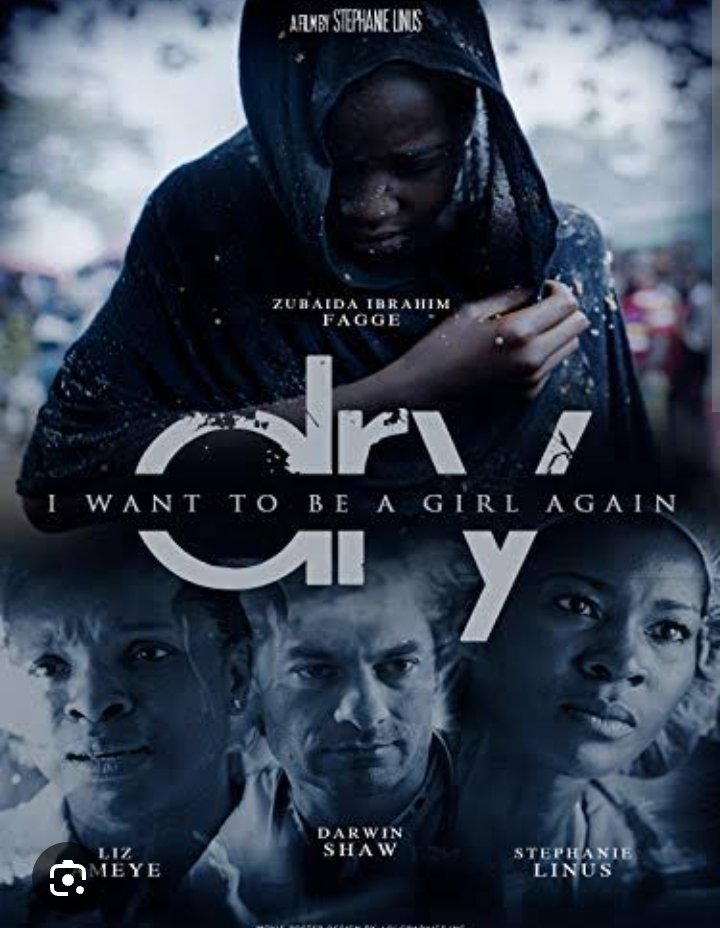Shining Star: A Stirring Call to Remember, Rethink, and Respond

Introduction
Recently, I came to a painful but irresistible conclusion:
- Abuse is never part of God’s plan for any child.
- It is better for a child never to have been abused.
- The core problem society faces today is a mismanaged childhood manifesting in dysfunctional adulthood.
- Once childhood abuse is set in motion, its catastrophic end is unpredictable in both impact and grievousness.
- The impact of childhood abuse is not only unquantifiable but eternal, except by divine intervention. And divine intervention here is not a magic wand; it is a long, grueling process of mental renewal and the grace to win back the will to live beyond the wounds. As Scripture says, “His strength is made perfect in my weakness.”
- Healing is possible, but it is a journey. A lifelong one.
This week’s featured film, Shining Star, a gripping and emotionally resonant Nollywood drama by Bimbo Ademoye brings all of these truths into sharp focus. As someone who has lived through the pain of physical, emotional, sexual abuse, and neglect, I found this film deeply personal. It stirred memories I thought I had buried memories of fear, abandonment, silence, and survival.
Bimbo Ademoye’s Brave Offering
In Shining Star, Bimbo Ademoye doesn’t just perform, she opens a wound and invites us to sit with it. Directed by Great Valentine Edochie and starring a powerful cast including Chioma Akpotha, Kunle Remi, Ernest Obi, Darasimi Nadi, and Fiyinfoluwa Asenuga, the film tells the story of Ofoma, a young boy navigating the devastating terrain of abuse, abandonment, and the long road to healing.
The film’s catastrophic climax, the killing of Lopeda by Ofoma, directly illustrates my fourth point: that the outcome of childhood abuse is not only tragic but unpredictable in both scale and severity. To those who may consider the storyline far-fetched, I say: such conclusions often arise from unfamiliarity with the lived realities of abused children or an unwillingness to confront the long-term consequences of such crimes against childhood.
Shining Star premiered on June 14, 2024, and is available on Bimbo Ademoye TV on YouTube.
Bimbo’s Own Words
Beyond the screen, Bimbo Ademoye shared her personal story:
“I don’t usually share things like this, but today my heart feels heavy… In an interview, I opened up about something very personal:
My first ever betrayal came from my mother. She left me when I was just 2 years old. I was too young to understand what was happening, but the emptiness she left behind has followed me all my life. Watching other children grow up in their mother’s arms, while I had to grow up without mine, left a pain I can’t fully describe.
That kind of wound… it doesn’t always show on the outside, but it shapes who you become. I’ve spent years trying to heal, trying to be strong, trying not to let that little girl inside me feel forgotten. And even now, there are days when I still ask, ‘Why did you leave me?’
To anyone carrying childhood pain, feeling abandoned, or trying to heal from something you didn’t cause, please know you’re not alone. Your story matters. Your feelings are valid. And you deserve love that stays.
Thank you for reading my truth. Maybe, just maybe, someone out there needed to hear it today.”
These words, as much as the film, are the soul of Shining Star: a journey of pain, resilience, confrontation, and grace.
Why This Film Matters
This is not a spectacle, it is a statement.
Not just the story of Ofoma, but a reflection of:
- Every child who suffers in silence,
- Every parent who fails to see,
- Every system that chooses to look away.
It compels us to:
- Re-examine our roles as parents, caregivers, and institutions.
- Acknowledge the silent suffering in our homes, churches, schools, and communities.
- Ask hard questions about the systems we claim protect children.
The film aligns with an eternal truth: the destiny of a child was set before the world began, and abuse was never part of God’s design.
As Scripture reminds us: “Train up a child in the way he should go, and when he is old, he will not depart from it.”
Today, real evangelism is not only on pulpits or streets, t’s in homes where children are raised in truth, love, and safety.
Healing Is a Journey
Even as a person of faith, I testify healing is not a switch, it is a daily walk.
You carry the brand marks in your body, not because you are defined by them, but because they remind you of the grace that carries you forward.
Shining Star is a companion on that journey. It validates every survivor’s voice, every question, every silent cry. It insists that children deserve love that stays and affirms that while the road to healing is rugged, it is worth walking.
A Call to Action
This film must not end when the credits roll. It should ignite conversations:
- In our homes: Are we truly listening to our children’s silence and fears?
- In our churches: Do we have systems that protect children, or just sermons?
- In our laws: Are we enforcing child safeguarding, or merely looking the other way?
This is a film we must watch, not just with our eyes, but with our hearts.
Conclusion
Shining Star is more than a movie. It is a mirror, a movement, a mandate.
So I end as I began, with truths too vital to ignore:
- Abuse was never part of God’s plan for any child.
- It is far better that a child is never abused than to spend a lifetime trying to heal.
- Much of society’s dysfunction begins with a childhood mishandled and misunderstood.
- When abuse is set in motion, its outcomes are tragic, unpredictable, and far-reaching.
- Healing, though possible, is not instantaneous, it is a long, grace-filled journey.
- And divine intervention, while real, often comes through steady restoration, not sudden miracles.
Let us support parents.
Let us protect children.
Let us not forget.
Movie of the Week: Let it speak. Let us act.





